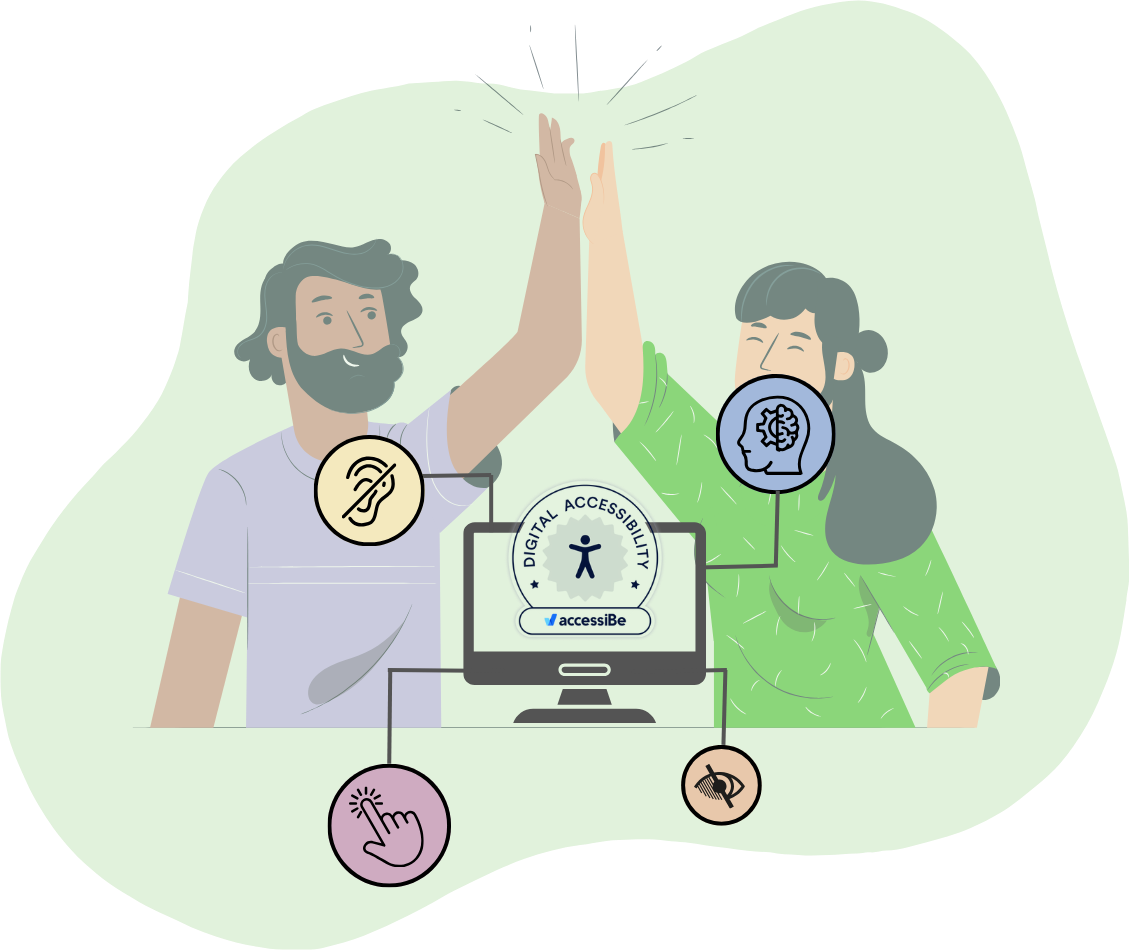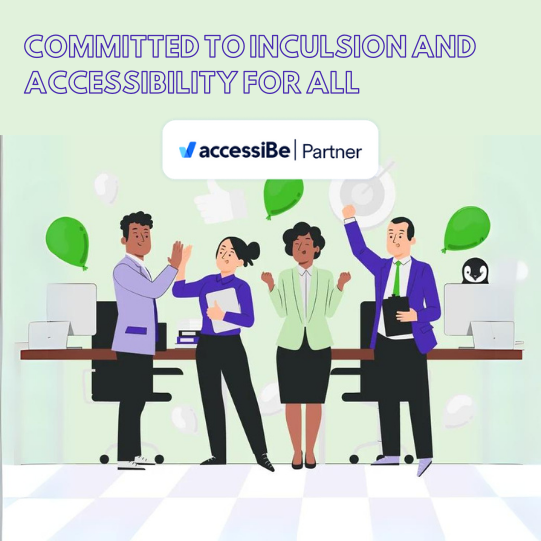We’ve discussed this many times before - but it’s always worth mentioning again: the HubSpot CMS developer that you choose will make or break (literally) your website or the websites of your clients, if you’re an agency. We’ve had so many clients come to us in bad situations after being let down by their developer partners. We think it’s important that agencies and businesses alike be able to understand exactly what to look for in an ideal development partner. For this reason, we’ve been offering up a little insight on things to address in your developer interview process.
There are a LOT of questions that you should ask a prospective HubSpot CMS developer before you decide to work with them. We’ve already taken time to outline 12 different questions in part one and part two of this series. We’re hoping that after part three that you’ll be armed with enough questions to adequately interview and qualify your HubSpot developer.
Can you provide me with references?

This should be an easy one. Any developer that has experience in HubSpot CMS will be able to provide references of businesses or agencies that they’ve worked with to sing their praises as a developer.
Be sure to actually contact the references that you request. You’ll want to ask the references when they worked together and how the process went, as well as what they struggled with in the process and what went well. Struggles aren’t necessarily red flags, but how that developer handled the struggles could be, so make sure to ask about them.
If we are lower budget, can you work with us?
Some developers won’t work with certain budgets - and that’s important to know in advance. This is a really good question to ask your developer so that you can plan appropriately. It’s important to make sure you are realistic about what a lower budget can fetch you.
Many developers can make a smaller budget work, but you’ll almost always have to compromise features in the immediate. Some HubSpot developers (like us) get creative when clients have a lower budget and break down a website project into phases to help with the expense over time. We refer to this as growth-driven design. Growth-driven design allows you to get all the features and functions that you want in a huge website project by breaking out those features into a predictable monthly budget over a longer time period to soften the financial blow of a robust website.
Growth-driven design is the best approach to maximizing your return on investment with HubSpot and really making your website into a lead-generation machine. Choosing a web developer based on price or paying less for cheap, outsourced development will usually come back to bite you somewhere else along the way, so be sure that you’re being realistic when it comes to your goals and what will be required in order to achieve them.
Related: Agencies Should Pay More for Web Development Outsourcing
Will you be able to provide open an honest feedback on our ideas and designs?
Having hard conversations is a skill set that’s extremely critical for a development partner, but one that isn’t often found, particularly when there are many layers of communication to pass through. A developer may become complacent and prone to order taking (we’ll keep saying it - your website isn’t a sub sandwich), especially when they’re bogged down with a lot of projects or just want to take a job for the money.
Other developers are here to make amazing websites that really deliver on a client’s behalf and help them reach their goals. They’re the type to geek out on page speed optimization and UX and A/B testing. They’re probably going to install a tool like Hotjar or Lucky Orange onto your website to understand user behavior.
Just because a design looks pretty, doesn’t mean that you’ve conceived exactly what a user might do when they interact with that information or planned that design out according to the buyer journey of your website visitors. An experienced developer has done this a few different times and they’re willing to say what will work and won’t work. At times we’ve been hamstrung when our agency clients are firm on a design, but that doesn’t mean we don’t speak up. Hire a developer that’s willing to say something and be willing to consider their opinion and feedback seriously when it comes to design changes, potential for design elements to cause website bloat and potential UX issues.
Can you give more details on the developers that will be part of the project?
Our owner, technical director, lead developer and all around do-everything guy is the one on our sales calls - but in larger organizations, that’s not always the case. You’re usually dealing with a sales rep and there’s an entire hive of people dedicated to delivering on your behalf. This can be great in some ways, but in others it can be a bit like a game of telephone. Organizations, especially HubSpot Partners, are usually pretty good at hiring developers that align with their mission. However, this isn’t always the case and getting to know more about the person behind the development of your website can be helpful.
Dig into who they are, where they came from, who they’ve worked with in the past. An agency’s experience isn’t necessarily an individual developer’s experience. The more you learn about the projects your individual developer (or team of developers) has worked on and how that can contribute to the success of your site, the more you’ll understand about their mentality in the development of your website project.
What is the anticipated timeline?
We hate “deadlines” - we prefer timelines. There are so many factors that can go into a website not being delivered on an exact date, and we think that choosing a random date for the completion for a huge project can set you up for disappointment. Your website isn’t a rocketship that’s launching into space. It’s not a one-and-done - it’s the delivery of something amazing. Almost like a child, you don’t want it coming out before it’s ready and you definitely want to make sure it’s fully developed. Having a “due date” rather than an expected timeframe can sometimes be unrealistic. We never make launch date promises, because there are too many factors outside of our control.
If, for some reason, you find yourself in a time crunch where you need a new website done quickly, keep in mind that you’ll have to compromise. A stripped back version of your website can likely be launched under a time crunch, but if you’re paying a premium for this, the very last thing you want is to rush it along.
All the best things take time. You have to keep in mind that you’re not the only project your developers are working on and if you want something now-now-now, you might have to sacrifice on things we never like to sacrifice on, like diligent quality assurance testing or superior back end functionality. Take your time. Realign your expectations with reasonable time frames rather than singular dates. We promise it’ll be worth it, and a good developer is almost always trying to overdeliver, so you may be pleasantly surprised by the date you end up launching on.
How will we communicate?
Different agencies communicate in different ways. Some include the client in their project management software for the granular details of their projects, while others prefer to correspond via e-mail. We’re pretty flexible and fit into the processes that exist with the different agency partners we work with. For our direct business clients, we typically use a combination of Slack and e-mail. E-mail is our go-to, but Slack helps us communicate quickly if we need an answer to something time sensitive. Feedback gets run through Pastel (our favorite collaboration and QA software), which makes things really efficient and seamless for us. We’ll take to Zoom for reviewing designs or running through screen-share scenarios as well.
Overall, you can probably expect a few different communication methods and none of them are wrong - but your developer will be able to give you the correct platform for communication in different scenarios. This is also a good time to mention any preferred communication methods you have. Your developer partner should be flexible, but still have boundaries and processes for regular communication and the best ways to submit requested edits.
Related: HubSpot CMS Developer Quality Assurance - Why we Love Pastel
There they are - 6 more of our 18 interview questions to ask your HubSpot CMS developer during your interviews. While this is by no means a comprehensive list, we think it’ll get a really great dialogue going and help you prioritize what matters most. Take these questions and consider your biggest priorities when it comes to a web developer. Don’t forget that you always get what you pay for. The answers to these questions will show you exactly why some development agencies charge what they charge for development. And no matter what the agency you’re talking to charges? You can rest assured that they’re worth exactly that.
What are our final thoughts on the web development interviewing process when it comes to HubSpot CMS?
- Determine your priorities
- Work with a developer that you LIKE
- Expect to get back out exactly what you put in
- Stick to deadlines to help your project run on time
- Communicate changes that impact the project ASAP!
For businesses on HubSpot, your website is everything to you. This means that selecting your web developer is one of the most critical decisions that you’re going to make for your business’ growth.
We hope our list of questions helps you choose wisely and make the most educated decision based on your business and priorities.
Be sure to check out Part 1 and Part 2.






